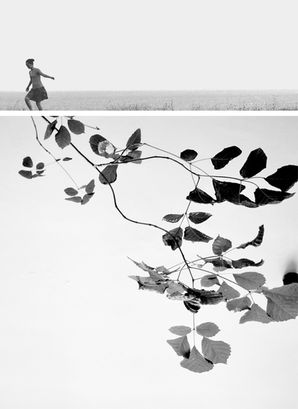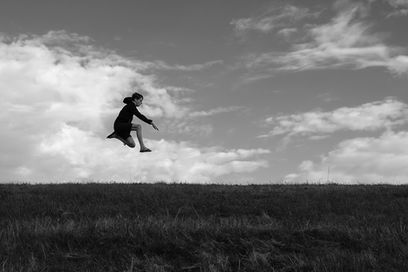
RANDOM PASSERSBY
November 5, 2021
INTERVIEW
PHOTOGRAPHY Vanessa Cass
INTERVIEW Karen Ghostlaw Pomarico
Vanessa Cass is an abstract street photographer born in Maryland, living and raising her family while creating her art in Haiti. Her collegiate studies as well as her extensive training with renowned Haitian artists, which include Roland Dorcely, Tiga, and Arijac, have influenced and inspired Vanessa’s unique visions in photography. Her 25 years of painting and art background give Vanessa’s photography a painterly aspect, switching out the paintbrush for her camera. What began for Vanessa as a passion and a self taught medium for expression, inspired her to take many workshops and courses with renowned street photographers, giving her the knowledge to develop her street photography and art. Utilizing the camera as a tool she explores the human condition, ironies, and contradictions found in everyday life in Haiti. Photography has given her a voice in documenting social issues, bringing awareness and light to a challenged community. Vanessa does not dwell on the negatives or darkness, but sees balance and light and hope, a catalyst for her distinctive style of work, forever growing and evolving, challenging herself with new endeavors to expand and broaden her work. She is currently studying curation, abstract post modern art and photography, adding multifaceted layers of knowledge to her abstractions. Vanessa’s energy and spirit, as well as her art and photography tell a brilliant and unique story of Haiti.

“One thing that burns a hole right through me, and that I carry with me, besides seeing what an incredibly resilient, strong and magical place this is, is that I know for sure that no matter how different we all are, no matter how wide the gaps are between us, we are all basically the same. Humans trying to get through life as best we can.”
IN CONVERSATION WITH VANESSA CASS
THE PICTORIAL LIST: Vanessa please tell us about yourself, and why Haiti has become home for you and your children. What is the anchor that keeps you there?
VANESSA CASS: I am a soon to be 52 year old, single mom, artist, entrepreneur and photographer. In a whole series of circumstances beyond my control, I came here, and have been here, on and off for over thirty years. Living here can either truly be a wonderful Caribbean experience, or life on the edge, and extreme living. In a country plagued by political unrest, economic shambles and natural catastrophes, anything can happen at any time.
What keeps me here? Somehow, through it all, I’m spoiled by actually being here in a tropical country and all the wonderful things that it brings, not to mention the incredible life lessons we learn on a daily basis. Some days, most days I think I’m insane for still being here especially as an American, but my time here isn’t up yet.
TPL: After your friend gave you your first camera, how did you know it was a perfect fit? Did you think back to Roland Dorcely and his advice that what you learned from him in painting would better serve you when you found the right tools to explore your art?
VC: It just felt right. I loved how I could transmit a mood, or a feeling through what I saw in the lens, and it wasn’t a struggle to get it down I immediately thought back to him and his words about how painting wasn’t going to be my niche, but that I would definitely be able to apply what I learned with him to the the field that would be for me. He was 100% right.
TPL: What made street photography the inspiration for your photographic style? Describe your style separate from street photography. What does street photography mean to you?
VC: I loved the fact that I could see life happening through others and catch the slices of it. I also love how street photography offers you situations that you can’t make up, it’s raw and real, it’s movement. To quote The Dictionary of Obscure Sorrows:
“sonder" -
n. the realization that each random passerby is living a life as vivid and complex as your own—populated with their own ambitions, friends, routines, worries and inherited craziness—an epic story that continues invisibly around you like an anthill sprawling deep underground, with elaborate passageways to thousands of other lives that you’ll never know existed, in which you might appear only once, as an extra sipping coffee in the background, as a blur of traffic passing on the highway, as a lighted window at dusk.
TPL: How have the streets and culture you capture influence your photography? How have your captures changed the way you see Haiti?
VC: One thing that burns a hole right through me, and that I carry with me, besides seeing what an incredibly resilient, strong and magical place this is, is that I know for sure that no matter how different we all are, no matter how wide the gaps are between us, we are all basically the same. Humans trying to get through life as best we can.
The streets here are vibrant and alive on one hand, but extremely gritty and dangerous on another hand. I’m Wabi Sabi, my nature is to try to show beauty in the darkest or unexpected places. That’s what this country is made up of. Beauty alongside horror.
TPL: Street photography tells so many stories that as photographers, stay with us. They may even change the way we see or the way we tell stories. A cause with a direct effect. Is there an incident you can recall that will always remain with you, that changed your view of the world in which you shoot in?
VC: Absolutely. I will never forget on a Sunday morning, I was standing in my usual spot, and I saw a man pulling, a young girl about 12, and she was crying, begging him to let go of her, she could barely walk, he saw me, and saw my camera and he panicked and she got away. He ran in the other direction and sent someone to go get her, and I looked at the other guy and told him to let her go, he saw my camera as well, and pretended to look for her, but he let her go too. I have ideas as to what the story was, but I’m so grateful she got away.
TPL: You have mentioned you write stories, what are your stories about? Do your photographs inspire you to write? If so, what do you write with that inspiration? Do the streets and culture that surround you inspire words or writing?
VC: That is so funny that you ask, actually my answer is funny...I actually write about snapshots of my life, moments lived, "etat d’âme". Sometimes I think my life is an episode of Curb Your Enthusiasm, so I find myself writing about ridiculous situations I find myself in. I also love talking about food, and moments around a meal, so I’m putting together a compilation of short stories about my sensorial, (not a word) journey and memories around food.
I’ve put together a book/photo book that has yet to be published, working on it, but funnily enough I have never written anything about Haiti, I may allude to certain experiences with people but, never actually about this place.
I loved the fact that I could see life happening through others and catch the slices of it. I also love how street photography offers you situations that you can’t make up, it’s raw and real, it’s movement.

TPL: Do you have any favourite artists or photographers you would like to share with us, and the reason for their significance?
VC: I am inspired by all forms of art, so music and art definitely inspire me. I’m obsessed with the Harlem Renaissance, all aspects of it, and I think that has shaped my photographic style as well. I also love minimalism, and contemplative photography so somehow I think they all seep in somehow.
There are so many photographers I am in awe of. Daido Moriyama, Dorothea Lange, Diane Arbus, Mary Ellen Mark, Ray K Metzker, and so many more, not to mention all the extremely talented photographers that I know and get to be surrounded by their work on a regular basis here on social media. It’s a great time to be alive for artists.
TPL: What are any lasting impressions you would like to leave the viewer? What is their ‘Take Away’?
VC: Hopefully, on a local level, that beyond everything you’ve heard or know about this country, that it’s a very beautiful and magical place and the people are incredible fighters. On a global level, that there is definitely beauty in the broken and dark parts of this life.
TPL: What are some tips or advice you would give yourself if you started photography all over again?
VC: I’d tell myself, to not be cocky. No one likes to be photographed, so if you do it, let them keep their dignity. In Creole , here, there is a saying. Loosely translated, it says, “You have to know there, to go there.” So whatever it is you want to capture, have an idea of the culture, and the mores. Go slowly, don’t push, don’t be arrogant and don’t fight back when confronted.
Also, don’t delete any pictures, you would be surprised when you go back to your archives a few years later, you’ll see how good some where. There’s a lot to be said for not knowing some rules and being wild eyed...which also goes hand in hand with, build your own personal style, but don’t be afraid to to try different things and subjects.
TPL: You talked earlier about how the Haitians generally don't like to be photographed, is this because of superstition or cultural beliefs?
VC: It comes down to them feeling exploited by foreigners, which up to this day, I am considered to be one. They think I’m making money with their lives, while they have very little.
TPL: Does the equipment you use help you in achieving your vision in your photography? What camera do you use? Do you have a preferred lens/focal length?
VC: I am currently using my Leica DL7. It took me a while to figure it out, it I can honestly say it pushed me to see and compose my shots differently. I love it. I have no real preference for settings. I usually shoot from the same distance just because I need to be somewhat anonymous. I find most of my photos are taken at f5.6/34 mm.
TPL: What are some of your goals as an artist or photographer? Where do you hope to see yourself in five years?
VC: To be, hopefully much better at it than I am today, able to travel the world photographing people just being people and hopefully making a living exclusively from my different art forms.































